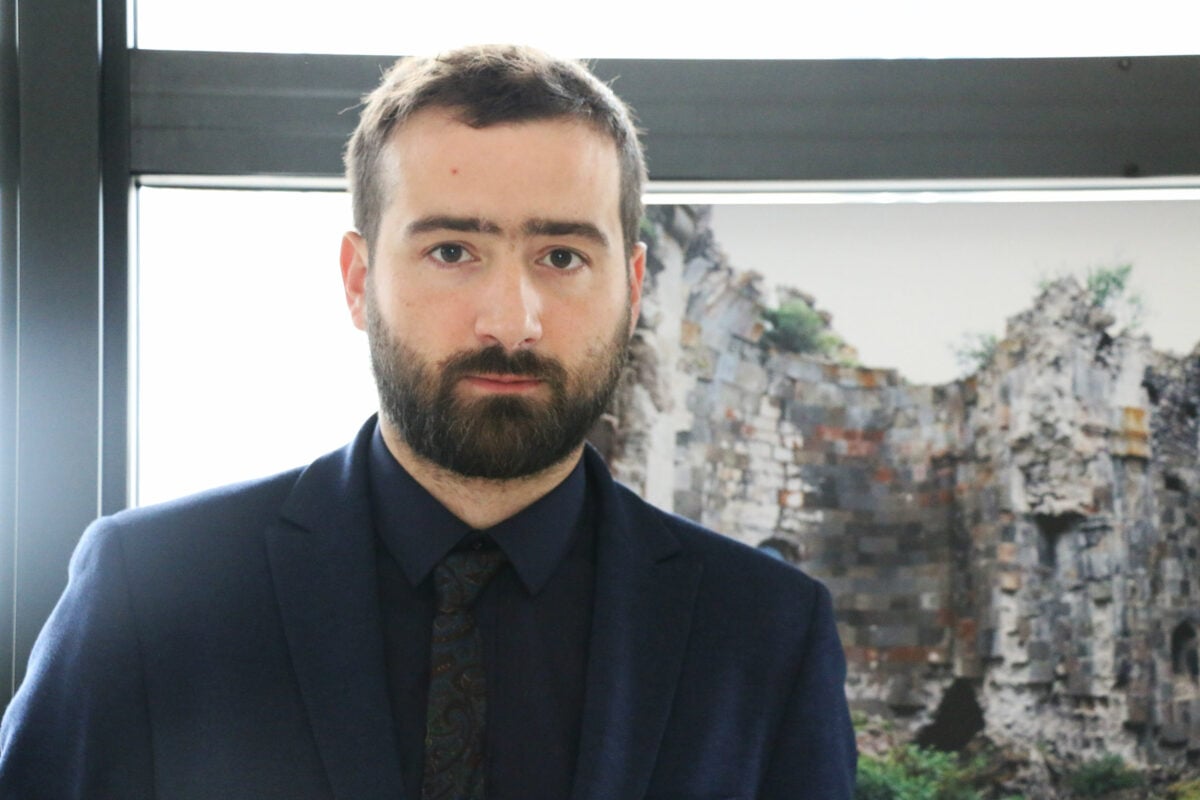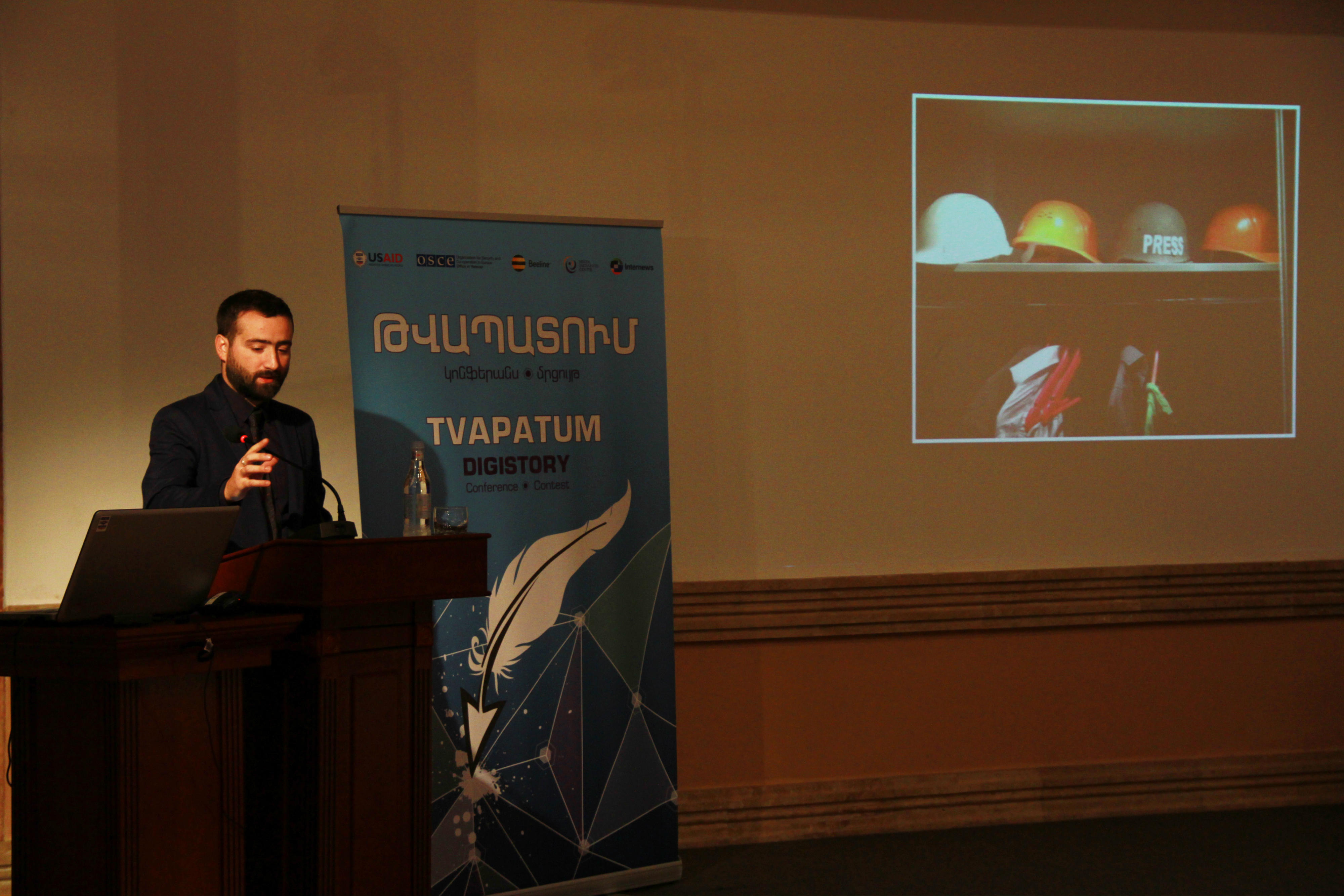
At Tvapatum (“DigiStory”) 2016 media conference [AM], British journalist Oliver Carroll provided 10 suggestions to help journalists working in various hotspots and conflict zones around the world be better protected and be better able to summarize witness testimonies and the collected information.
Carroll is the Managing Editor of the Moscow Times, publishing pieces on Ukraine, Russia, Eastern Europe. He has covered the Ukraine war and experienced for himself the problems journalists face in a volatile region.
His ten suggestions to journalists are as follows:
-
1. Safety first.
In any situation, you need to get accreditation, and think about permits and professional certificates.
-
2. Put yourself in the shoes of people you don’t understand.
Don’t expect a lot from people who speak to you. Say, if you’re speaking with an old woman living her everyday life, don’t forget that her pickles reserves are no less important to her than seriously following the political and military situation.
-
3. Search for voices you don’t agree with.
Our notions and what we see don’t always correspond with each other. You need to be on the ground, see and speak with people having different opinions, so that it becomes possible to psychologically adapt to that idea. As they say, there are voices that become heard only when you come close to them.
-
4. Go to the logical, honest end, however uncomfortable it may be.
As a journalist, you always remember better what you haven’t shown than what you’ve published. Even if you know that photos of decaying corpses will bring you fame, don’t publish them.

-
5. Tell the story you see, not the story you think your readers or governments want.
For example, during the occupation of Donetsk Airport, it was very difficult to admit that the Ukrainian army is failing, that the army’s superiors were more concerned with their own safety than that of the soldiers.
-
6. Balance through detail. Less opinion, more facts.
Of course, it’s easier for a foreign journalist to separate facts from opinion than for a journalist who is on one of the sides of the conflict. I think the Armenian journalists working in Nagorno-Karabakh dealt with the same issue.
-
7. Tell a story you want to read.
Yours might be a human story, but that’s not enough. Construct the story in such a way so that the heroes and those directly affected by the conflict situation appear.

-
8. Stay civilian.
Don’t pick up a weapon; don’t be photographed with a weapon; and moreover, don’t publish photos of yourself holding a weapon on social media, as some Russian journalists did during the Russian-Ukrainian war.
-
9. Challenge yourself.
A journalist in a war is faced with a difficult choice; he or she must be able to distinguish reality and not succumb to the propaganda heard from both sides. In explosive situations, as a rule, media outlets are targeted. For example, in Ukraine, I was forced to constantly explain that I’m neutral.
-
10. Understand your limitations.
Reconcile with the fact that you have limited abilities. And you can’t fix all the injustices and pain of life.
Prepared by Nune Hakhverdyan.


Add new comment
Comments by Media.am readers become public after moderation. We urge our readers not to leave anonymous comments. It’s always nice to know with whom one is speaking.
We do not publish comments that contain profanities, non-normative lexicon, personal attacks or threats. We do not publish comments that spread hate.